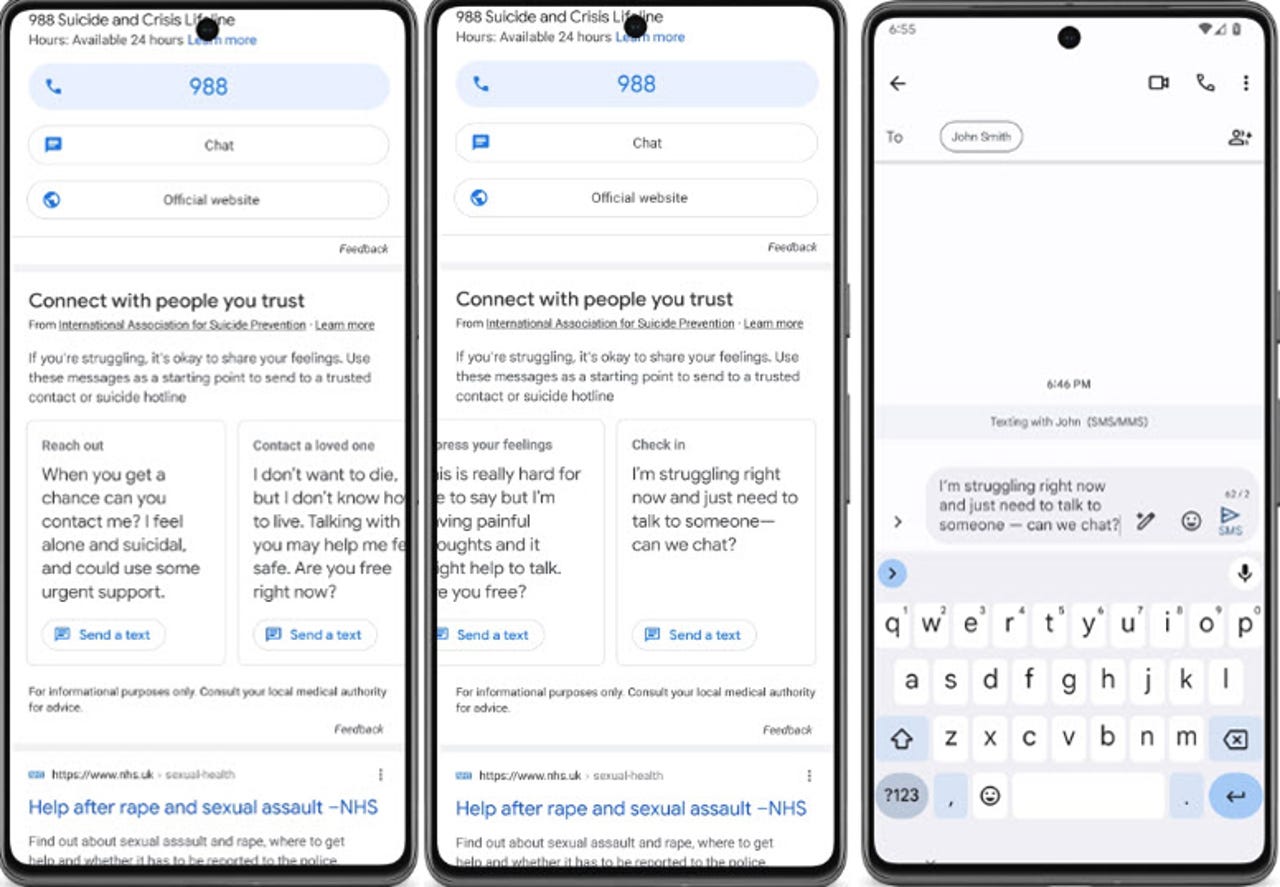Suicide-related Google searches to yield message templates for seeking help

Google is providing a potential lifeline to those who may be contemplating suicide. On Monday, the company said it will soon display messages that people searching about suicide could use to ask for help. Based on specific templates, the prewritten messages will contain different requests to speak or chat with a friend, family member, or other trusted contact.
If you need help, visit: The International Association for Suicide Prevention
The idea behind Google's initiative is that a person thinking of suicide might run an online search looking for answers or guidance or information, especially if they don't know where else to turn. In that case, the person might not even know how to describe what's wrong or why they're having suicidal thoughts. And they may be reluctant or embarrassed to contact a friend or family member directly.
Designed to remove some of the difficulty and stigma involved in reaching out to another person, the messages will offer direct requests such as the following:
Also: Is ChatGPT an effective therapy alternative? 80% of this study's participants thought so
- "I'm struggling right now and just need to talk to someone—can we chat?"
- "This is really hard for me to say but I'm having painful thoughts and it might help to talk. Are you free?"
- "I don't want to die but I don't know how to live. Talking with you may help me feel safe. Are you free right now?"
The person could choose the message that best expresses their feelings and thoughts and then text it directly to a loved one, who hopefully will be able to intervene and provide aid and comfort to that person.
The pre-written messages were developed by Google in partnership with the International Association for Suicide Prevention. But this isn't the first time Google has made an attempt to help individuals thinking of suicide.
For several years, suicide prevention information has been available at the top of relevant search results. Last year in the US, the company updated this information to display the 988 Suicide and Crisis Lifeline, a network of state and local call centers from the US Department of Health.
A 2022 survey from CNN in partnership with the Kaiser Family Foundation found that 90% of the people polled felt that the US is facing a huge mental health crisis. On its end, Google said that searches for "mental health crisis" have risen each year. In this environment, people in crisis need easier access to mental health resources and to friends and family members for support.
Also: Generative AI could lower drug prices. Here's how
"People often turn to Google Search in some of their most vulnerable moments," Dr. Megan Jones Bell, Director of Consumer and Mental Health at Google, said in a blog post. "In the context of a crisis, it is critical to instill hope and give simple information that is easy to act on."
Google has also directed certain resources to teenagers and young adults. For people in the 10-34 age group, suicide is the second leading cause of death, according to the CDC. In response, the company offers crisis support resource panels on YouTube to help young people connect with live crisis professionals for suicide, self-harm, and eating disorders. To address that last issue, Google has started to remove content from YouTube that shows or promotes eating disorders such as binging and purging.
